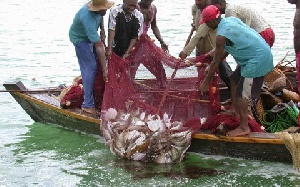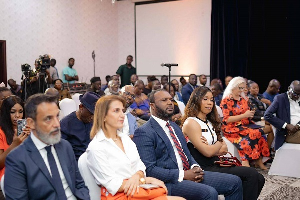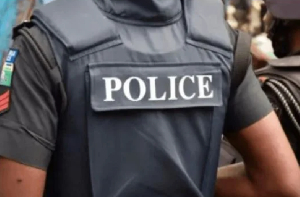The Government of Ghana has set May 15 to June 15, 2019 as a period in which Canoe and Inshore fishermen are prohibited from trawling on the country’s coast for fish.
Under the agreed Closed Season Policy, Industrial Trawlers are expected to observe their ban from 1st August, 2019 to September 30th 2019 and, the Tuna Fleets are expected to observe the ban from 1st January, 2020 to 28th February, 2020.
The Ministry of Fisheries and Aquaculture Development has settled on the above dates to arrest what they describe as, the depletion of the country’s fish stock. The Ministry, however, explains that it was forced to accept the said dates from the fisher-folks after they vehemently refused to accept the 1st to 30th August, 2019 proposed date especially for the Canoe and Inshore fishers, this time the ministry believes will give the fishes that have eggs the opportunity to lay their eggs and bring forth new fish in the sea to ensure that we’re replenishing the stocks and, to also deal with the issue of post-harvest losses and to ensure a better way of processing and packaging fish for the market.
Scientifically, the Sadinella stocks are often pregnant around August so it was for achieving a maximum results of preventing the fishermen from catching the pregnant ones. The idea is to allow August to pass so that they will lay their eggs for the juveniles to go into the wild. The adults will then be available for capture.
You need every fish to spawn at least once to keep the cycle going. If we want to restock our fisheries, we need not disturb the spawning process. Within the same period, spawning takes place; so as to achieve a maximum results. In order not to disturb the spawning process, the August date was proposed but, the fishermen rejected the said date and, decided to observe the closure of the sea from May to June 2019, which will not yield much results. So the question then is, what might have compelled the Ministry to accept the date as proposed by the fisher folks and not to go by what has been advised by the experts?
The exercise when given the necessary attention and enforcement will be fruitful if the said dates as proposed by the experts for the closure is adhered to by the fishermen. The Ministry as a regulatory body must not be seen succumbing to pressures from the fishermen to go by their date so as to, save the country’s waters and the depletion of our fish stocks. This when done, will also go a long way to curb the importation of fish into the country on large scales which affects the national purse.
The sector ministry’s decision to go by the proposed date by the fishermen is believed by some members of the general public and the opposition political parties to be shielding government from losing votes from the coastal areas after the fishermen threatened a voter apathy or voting against the current regime in the next elections when plans to close the seas was announced last year. This is also believed to have informed the decision by the sector Ministry for a postponement for further stakeholder consultation.
I paid a visit to two major fishing communities in the Greater Accra region (James Town and Chorkor) to have an interaction with some of the fisher folks and, according to them, going by the acceptable and legal way of fishing denies them the anticipated harvest hence the decision to engage in illegal means of trawling such as, light fishing or chemical trawling.
Have you wondered why Ghana has not been able to follow the steps of Tanzania, Kenya among others with a ban on the importation of fish from China and even other countries? The demand for fish is increasing while supply is shuttering so we depend on fish from neighbouring countries such as Benin, Burkina Faso and Ivory Coast to augment supply as a coastal country. This is saddening and a threat to the future of this country. As a student of Development, I see the lack of Political Will on the part of governments over the period to enact or enforce what will save the over 25 million people including the fishermen themselves for sustainable fishing to be profitable and also, reduce the level of destruction to the marine ecosystems as a whole. The Ministry must reverse the decision to accept the closed season date as it has announced and go by what the experts had propos
ed. Efforts to save our marine wealth must not be negotiated for the benefit of any group of people to the detriment of the country’s future.
The argument that the Fishermen will lose their jobs and livelihoods within the period should be one of the reasons why they must be entreated to adhere to the decision by government to close the sea for the said period, so as to secure their fishing business for the future and save the country’s waters and fish stocks. While at this, let me draw your attention to what has brought the country to this status.
The illegal, unreported and unregulated fishing practices on the country’s coast are considered as some of the major causes of the menace. Fishermen in Ghana indulge in all sorts of illegal fishing practices in other to make bumper catch thereby destroying or catching fingerlings to win their profits oriented interest. The country according to experts, must as a matter of urgency act swiftly to prevent the rapid depletion of the fish stock or face stern food insecurity in the very near future. According to the sector Minister, Elizabeth Afoley Quaye, ‘Ghana consumes over 950,000 metric tons of fish annually; and, currently imports over 60 percent to meet its consumption demand’. Ghana in 2016 imported $135 million worth of fish because of the reduction in the country’s fish stock.
Some of the illegal fishing practiced by fishermen in Ghana includes the use of light, dynamite, carbide and prohibited fishing nets. One other dangerous form of illegal fishing practice is, the poisoning of the fish. These practices however do not only destroy the aquatic world but also serves as sources of diseases and premature deaths. When the poisoned fish for instance is being consumed by humans, it could cause cancer and these fishermen knowing that these practices are unacceptable, continue to practice it with the believe that, it’s the only way that can sustain their fishing business .
The lack of political will by Governments over the period to end the menace of illegal fishing can be considered as a major contributing factor of the large importation of fish into the country today. Can we boldly say as a country that illegal fishing practices do not exist in our dear nation, and that we have been able to curb the depletion of our fish stock?
The Chinese are all over the sea engaging in saiko fishing and selling them right on the sea .This in actual sense should not be happening since it will influence the Ghanaian fishermen to also engage in such acts which, will eventually have some negative effects on our fish stock as a country.
It is therefore important to bring to the notice of citizens of this country that, the rate at which Ghana’s fish stock is depleting is very alarming and needs an immediate attention; which when not taken with some sense of urgency, will leave the country with the worst situation ever and, that is, not having enough fish or no fish in our waters.
Closing the seas within the stipulated period for fishing will allow for an increase in fisheries profit and yields and, also enhance the country’s fish stock conservation. In short, it will return “larger fishery and conservation outcomes.
Opinions of Thursday, 2 May 2019
Columnist: Starrfm.com.gh















